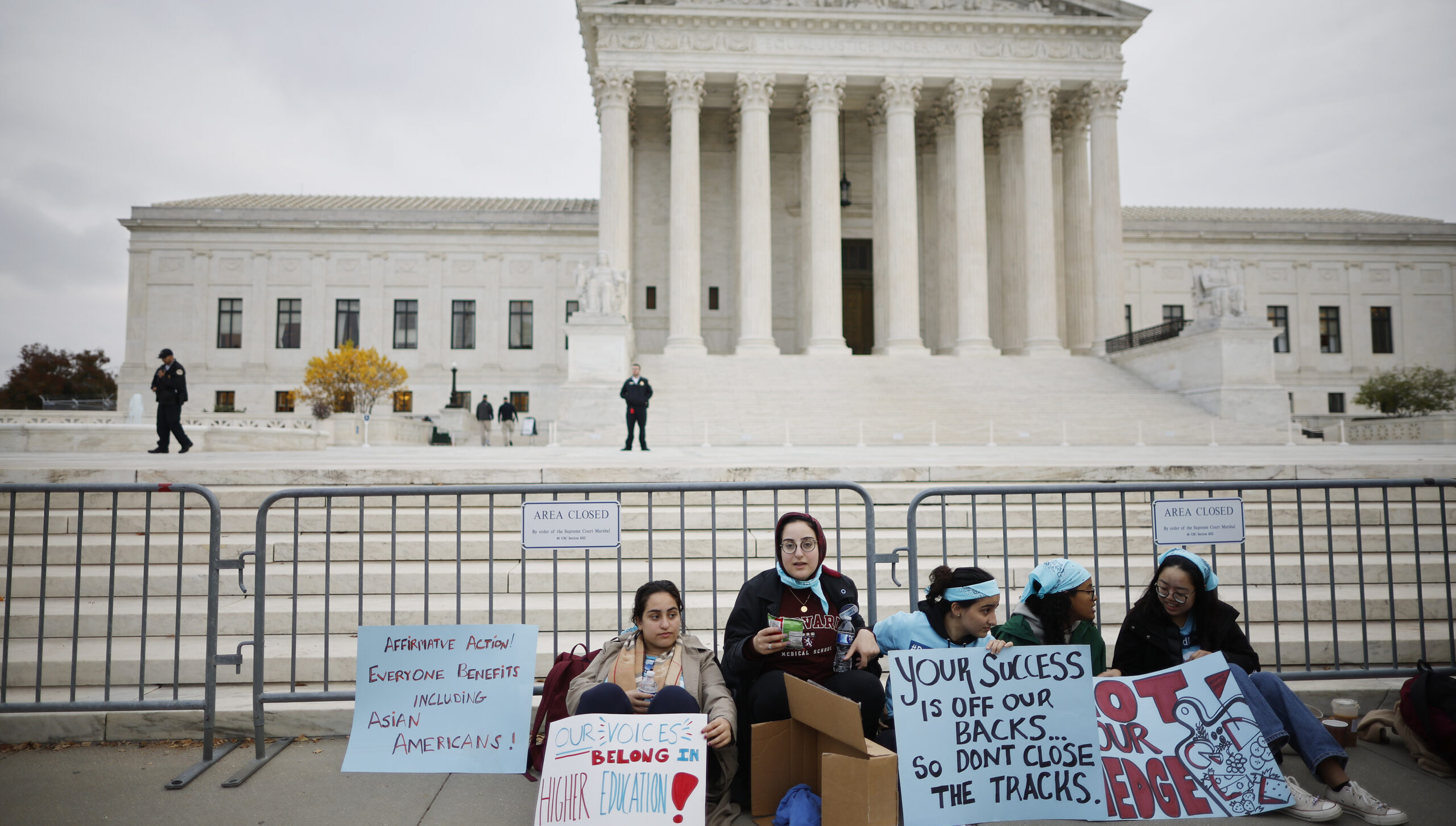A six-member majority of the Supreme Court is finally reining in the discriminatory diversity admissions policies that have characterised American higher education for more than half a century. Thursday’s opinion, written by Chief Justice John Roberts, is refreshingly firm and direct, concluding that race-preferential admissions policies are both illegal and unconstitutional. The high court’s previous willingness to look the other way is now a thing of the past. As Roberts put it, “eliminating racial discrimination means eliminating all of it”.
Two cases were before the Court. Both were brought by Students for Fair Admissions — a membership organisation created for the purpose of mounting such lawsuits. The first was against Harvard, the country’s oldest university, dealing with the especially high academic standards to which Asian American students are held. The second — brought against the University of North Carolina, the country’s oldest state university — challenged the institution’s race-preferential diversity admissions policy, which disadvantages both Asian American and white students.
The Court held that the admissions standards of both universities violate the law.
So what happens next at the rest of America’s colleges and universities? Will they suddenly turn away from admissions policies that favour African Americans and Latinos over Asian Americans and white students, and instead play it straight down the middle? That seems unlikely. These days, many university officials see their role as evangelists for the gospel of diversity, equity and inclusion. They are unlikely to be deterred by anything so mundane as a Supreme Court decision. Some will continue as before; others will adopt various workarounds — some legal, some pure subterfuge. More lawsuits are likely to come about in the future.
Still, for those who have been viewing with dismay higher education’s relentless obsession with race, this is progress. And for the upcoming 4th July holiday, there will be time to savour Roberts’s opinion as well as the eloquent concurrences of Justices Clarence Thomas, Neil Gorsuch, and Brett Kavanaugh.
In the future, some schools are likely to pivot from race-based affirmative action to class-based affirmative action, which remains perfectly legal if pursued for its own sake. After all, the reason we have state universities is to ensure that higher education is available to all, not just those who can afford private school tuition.
A major criticism of existing race-preferential admissions policies has been that the beneficiaries are often from well-off families. Their parents and sometimes even their grandparents attended prestigious universities. Meanwhile, students from less advantaged circumstances are often discriminated against because they happen to be Asian American or white. Basing admissions preferences on socio-economic status would presumably change that.
But there will be problems: for one thing, socio-economic status is a difficult thing to define. Should it be judged by family income? Wealth? Whether one’s parents went to college? The characteristics of the neighbourhood where the family resides? If a university uses its discretion to define socio-economic status in a way that is intentionally designed to produce more African American and Latino students and fewer Asian American and white students, it is still engaged in race discrimination and in violation of the law.
What’s more, as a matter of good policy it is crucial not to take class-based action too far. Another major criticism of race-based preferences is that they weren’t doing their beneficiaries any favours. Instead, by putting underrepresented minority students at schools where their academic credentials placed them toward the bottom of the class, they made it more difficult for them to succeed. A heavy thumb on the scale in favour of low-income students will produce the same problem.
Another workaround implemented on some campuses is the elimination of standardised tests, a strategy also fraught with difficulties. Standardised tests like the SAT function as a common yardstick that allow universities to compare applicants more effectively. The betting money is that prestigious universities that follow it will soon turn back — or lose some of that prestige.
All in all, it promises to be an interesting few years on American campuses. This certainly isn’t the end of the affirmative action debate.
Gail Heriot is a law professor at the University of San Diego and a member of the US Commission on Civil Rights.










Join the discussion
Join like minded readers that support our journalism by becoming a paid subscriber
To join the discussion in the comments, become a paid subscriber.
Join like minded readers that support our journalism, read unlimited articles and enjoy other subscriber-only benefits.
Subscribe